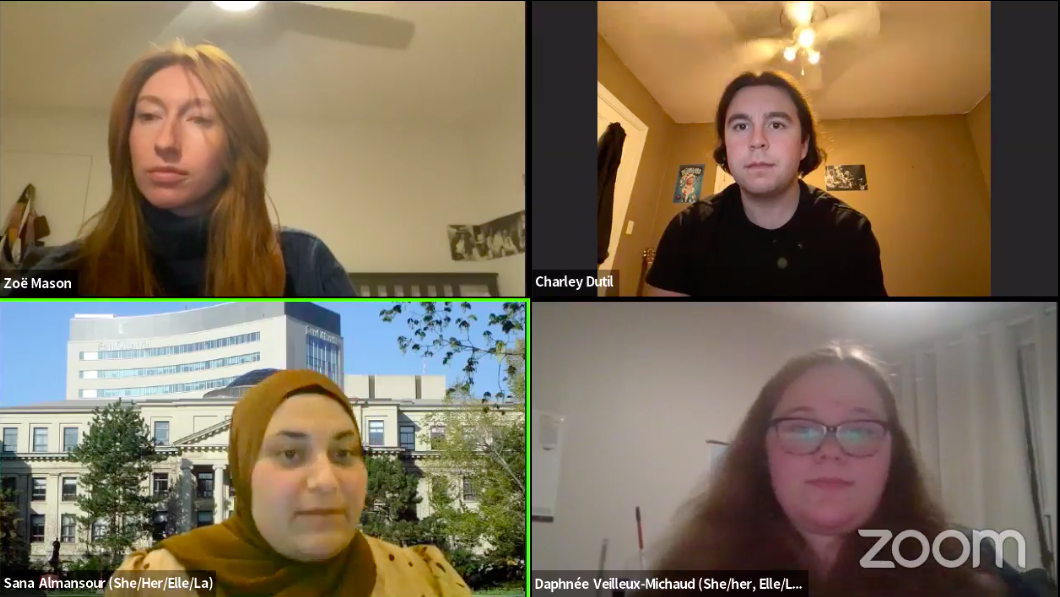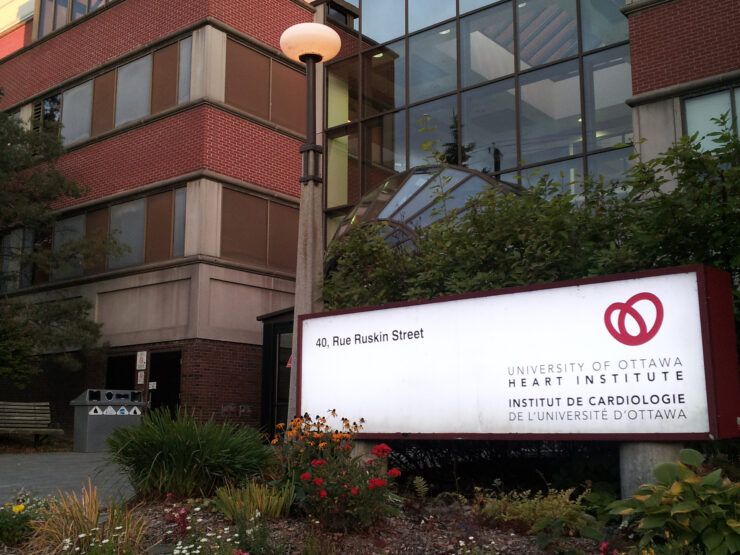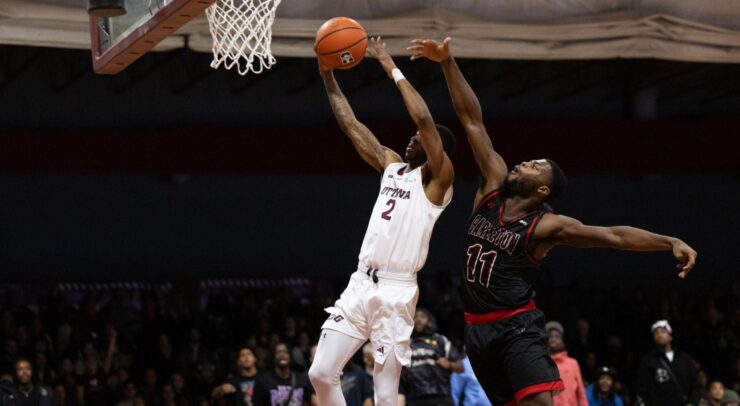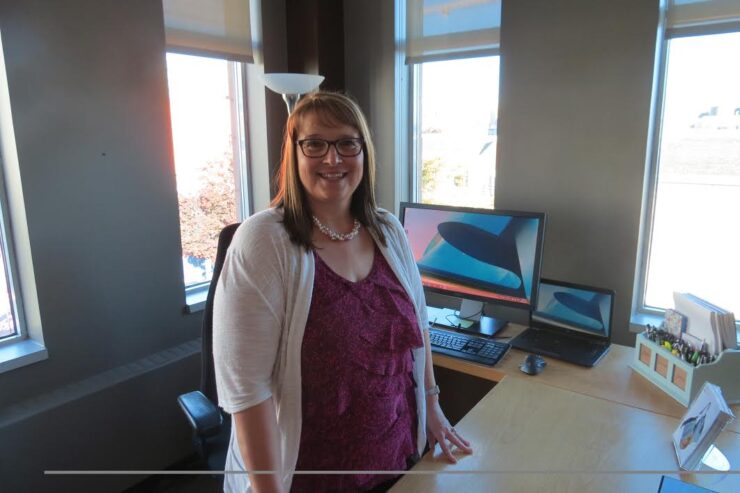Sana Almansour and Daphnée Veilleux-Michaud want your vote
The Fulcrum continued its four-day series of student election conversations and debates on Friday night with a debate between the two candidates for the position of equity commissioner on the University of Ottawa Students’ Union’s (UOSU) Executive Committee.
Daphnée Veilleux-Michaud, a third-year student in conflict studies and human rights, is running against incumbent Sana Almansour, a fourth-year student of health sciences with a minor in management.
Key points: Veilleux-Michaud
Veilleux-Michaud is concerned with creating an atmosphere of easy accessibility for students who may not be politically inclined.
In terms of specifics, one of her main goals is to lobby the University to adopt a newly coined, gender-neutral pronoun in their French communications and documents. Unlike English, there is not an obviously neutral pronoun in the French language, something Veilleux-Michaud says leads non-binary students to feel uncomfortable working in the French language. Adopting this new pronoun would be an easy fix.
During the period of the debate in which candidates were allowed to pose each other a question, Almansour pressed Veilleux-Michaud as to whether this issue really fell in her jurisdiction as a potential equity commissioner, suggesting it may be a concern of Francophone affairs.
Veilleux-Michaud recognizes that there is overlap. However, she argues that assigning issues of equity to the Francophone affairs commissioner is an unfair burden on the latter, and draws an unnecessary linguistic line on equity issues, which should span across languages.
“In English, it would be something that the equity commissioner would have to do. I feel like it should be the same thing for French, because obviously there are a lot of other problems that exist in the Francophone community, and too often because of this intersectionality that exists between different communities, then stuff like this just falls in the cracks,” she said.
“When cases like this happen where intersectionality is the number one reason why there is this problem, then we should adopt this case, because if we don’t then there’s no guarantee that any other people are going to do it.”
On the topic of sexual assault prevention, Veilleux-Michaud added that she wants to shift action from equipping women to defend themselves to a more preventative approach centered on education.
Key points: Almansour
Throughout her mandate as equity commissioner, Almansour has been part of a number of initiatives. Most notably, she helped to launch the Period Project, she has spoken with the University on the anti-racism and anti-discrimination policies that are coming into effect and has worked with the Women’s Resource Centre (WRC) on sexual assault and harassment prevention campaigns.
She also initiated the compassionate grading program for first-year BIPOC and first-generation students, she participated in discussions regarding the new health clinic on campus, and she helped with the tuition freeze.
If re-elected, she says the compassionate grading scheme would be her first priority.
“When the idea first came into discussion for the compassionate grading system, it came off on the back of what happened when we read the report on academic freedom. It was very disheartening, to be quite honest with you. It felt like we were taking a step back instead of a step forward,” she said
“One of the ways we were thinking of directly going against that disheartening feeling, and to actually help the BIPOC community is to create a compassionate grading system and to understand where the gaps are within their experience. And one of the gaps we found was that first year is the hardest year.”
The grading scheme, Almansour says, is at “such a pivotal moment.”
She adds that she hopes to work to extend the policy to all first-year students in the future.
“That is the goal, and I believe we can achieve it, but I believe that it takes us working with the same group for them to trust us, for them to know us, and for us to work together towards the end goal.”
To the polls
Both Veilleux-Michaud and Almansour were critical of the Bastarache Report and condemned the use of racial slurs in the classroom.
Both candidates also expressed the need for gender-neutral washrooms across campus and the hope to install Period Project dispensers in all bathrooms in the future.
The voting period for this year’s student elections will stretch from March 9 to March 11.
Stay tuned for more election coverage.






